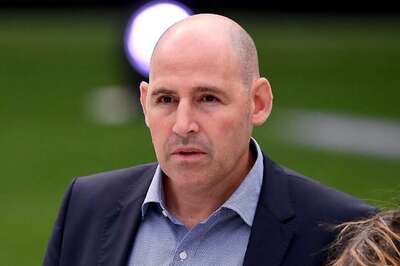
views
Six months back Rajeev had a job, a big house, a car and a good bank balance. Now, he has no job, no car, no house and he is in a debt. Too dramatic you think, but look around and you'll find that he's not the only one. There's a lesson to be learnt from his experience. So, let's see what brought this turnaround of lifestyle for him?
Personal loan did it for him!
Rajeev was tempted by the almost one-way upward journey of the markets for almost two to three years. It seemed to be too good an opportunity to miss. Money was also easily available. So he took a personal loan of Rs 10 lakh, withdrew Rs 5 lakh from PPF and put everything in the stock markets.
And, then, came the market crash. He lost every penny. He had to sell his car and some household stuff to pay the personal loan instalments. He became a nervous wreck and lost his job. He lost his house too because he couldn’t pay his home loan EMIs.
Had he invested his own money, he could have at least held on till the markets recovered. But with the interest liability on the personal loan ballooning, he had no option but to sell at a huge loss.
Lesson 1: Never invest in equity using borrowed money
Rajeev invested all his money in two to three real-estate stocks which were the hot favourites at that time. The fortunes of businesses can change practically overnight. Besides this the competition has become very intense. Just look at IT. Till just a year or so back, IT was the cream of the markets. But with US and Dollar in trouble, suddenly the market fancy for IT is gone.
There is so much truth in the saying "Don't put all your eggs in one basket". Similarly, we should always build a well-diversified portfolio. This ensures that problem in one sector does not drastically affect our total corpus.
Lesson 2: Never invest all the money in one or two stocks
Rajeev invested big money one-time. Equity markets are highly volatile - they can rise very sharply and very swiftly, and they can fall also very sharply and very swiftly.
So, it would be common sense not to commit our entire money at one go. It is always prudent to spread out the investments over longer time frame. Unless the markets move only higher and higher (which is practically impossible), this strategy will lower our average purchase cost.
Lower the cost not only means more profits when you sell, but also higher chances of making a profit. Unfortunately, in his anxiety to make quick profits, Rajeev was not patient enough and hence had to pay a big price.
Lesson 3: Never invest one-time in equity
As Benjamin Graham has beautifully said in his book The Intelligent Investor: investing is about making money in the future. And there are two ways to look into the future -- Prediction and Protection. Prediction is Impossible.
Therefore, the best way to make money in the future is Protection. The lessons we discussed above do precisely that -- they protect our investments thereby increasing the probability of making money.
Disclaimer: While we have made efforts to ensure the accuracy of our content (consisting of articles and information), neither this website nor the author shall be held responsible for any losses/ incidents suffered by people accessing, using or is supplied with the content.



















Comments
0 comment